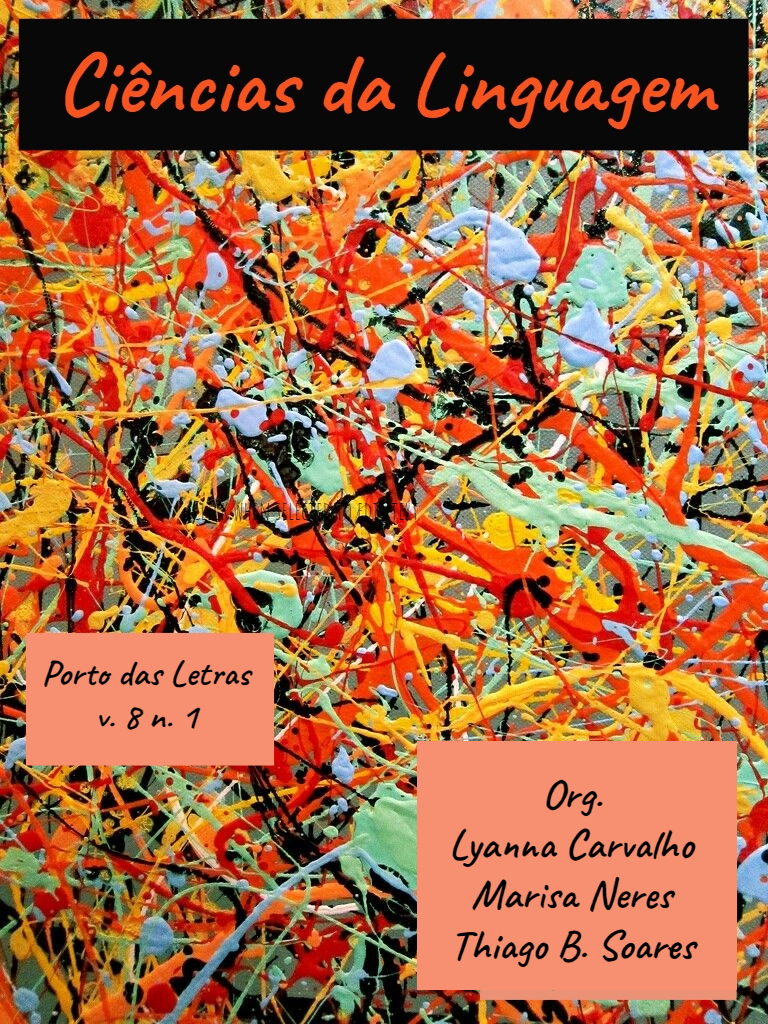The Enunciative scene in the nomination of indigenous people:
The case of Davi Kopenawa
Abstract
Abstract: The history of Brazil is marked by a continuous process of silencing the culture, language, and religion of native peoples. Even after more than five centuries that separate the facts arising from the first contacts between the colonizers and the indigenous peoples, a system that impedes the free cultural manifestation of indigenous peoples persists. One of the forms of this domination involves choosing a name to designate individuals in indigenous communities, without taking into account how the nomination operates according to the culture of these peoples. This article is based on the analysis of the process of naming and renaming according to the biography of Davi Kopenawa, an indigenous activist for the rights of Amazonian peoples, having as corpus the book co-authored with anthropologist Bruce Albert called A fall from heaven: Words of a Yanomami shaman (2015). For the analysis, the methodological theory of Eduardo Guimarães (2018) will be applied to establish the enunciative scene from the semantic crossings that run through institutions and enunciators. In conclusion, it was found that the silencing (cf. ORLANDI, 2008) still instituted by the Brazilian State implies in determining the places of saying that the indigenous people are inserted, constituting them as enunciators in a relationship of alterity with the enunciators and submitted to western/dominant culture.
Keywords: Indigenous people; Nomination; Enunciative Scene; Silence.
References
BRASIL. Constituição (1988). Constituição da República Federativa do Brasil. Brasília, DF: Senado Federal: Centro Gráfico, 1988.
CASTRO, R. V. O recado da mata. In: KOPENAWÁ, D.; ALBERT, B. A queda do céu: palavras de um Xamã Yanomami. Tradução: Beatriz Perrone-Moisés. São Paulo: Companhia das Letras, 2015, p. 11-41.
CLASTRES, P. Arqueologia da violência. São Paulo: Brasiliense, 1982.
CONVENÇÃO n° 169 da OIT sobre Povos Indígenas e Tribais. = Convention 169 on indigenous and tribal peoples. 27 jun. 1989. Disponível em: http://www.funai.gov.br/arquivos/conteudo/cogedi/pdf/LEGISLACAO_INDIGENISTA/Legislacao-Fundamental/Convencao-n-169-Terena.pdf Acesso em: 09 ago. 2021
DUPRAT, D. O marco temporal de 5 de outubro de 1988: TI Limão Verde. In: CUNHA, M. C., BARBOSA, S. (orgs.) Direitos dos Povos Indígenas em disputa. São Paulo: Editora Unesp, 2018.
GUIMARÃES, E. Semântica: Enunciação e Sentido. Campinas, SP: Pontes Editores, 2018.
KOPENAWÁ, D.; ALBERT, B. A queda do céu: palavras de um Xamã Yanomami. Tradução: Beatriz Perrone-Moisés. São Paulo: Companhia das Letras, 2015.
MAINGUENEAU, D. Gênese dos Discursos. Tradução de Sírio Possenti. São Paulo: parábola, 2008.
ORLANDI, E. P. As formas do silêncio.- no movimento dos sentidos. Campinas, S. R: Editora da Unicamp, 1995.
ORLANDI, E. P. Terra à vista: Discurso de confronto: Velho e novo mundo. Campinas,SP: Editora Unicamp, 2008.
RIBEIRO, A. "Cidadania"; Brasil Escola. Disponível em: https://brasilescola.uol.com.br/geografia/cidadania.htm. Acesso em: 14 jul. 2021.
VIANA, R. O que é xamanismo?. Superinteressante. 2017. Disponível em: https://super.abril.com.br/mundo-estranho/o-que-e-xamanismo-2/ Acesso em 09 ago. 2021.
Downloads
Published
How to Cite
Issue
Section
License
Os autores concordam com os termos da Declaração de Direito Autoral, que se aplicará a esta submissão caso seja publicada nesta revista (comentários ao editor podem ser incluídos a seguir).

